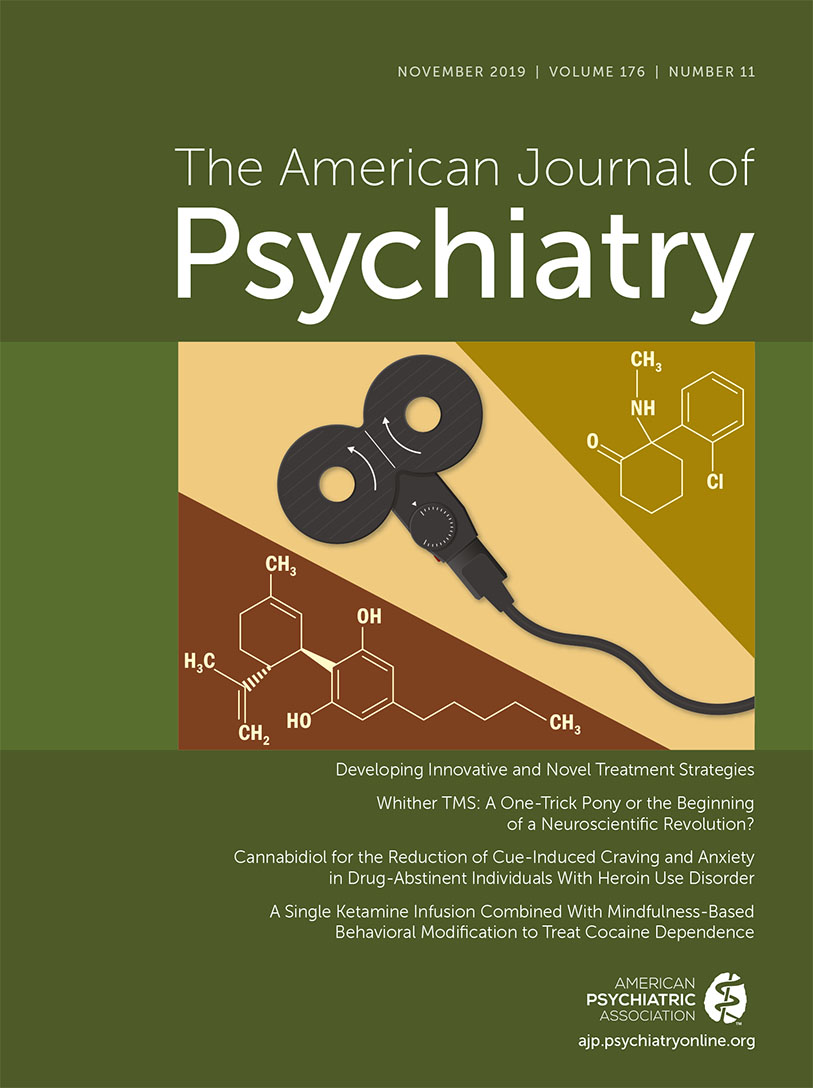Cannabidiol for the Reduction of Cue-Induced Craving and Anxiety in Drug-Abstinent Individuals With Heroin Use Disorder: A Double-Blind Randomized Placebo-Controlled Trial
Abstract
Objective:
Despite the staggering consequences of the opioid epidemic, limited nonopioid medication options have been developed to treat this medical and public health crisis. This study investigated the potential of cannabidiol (CBD), a nonintoxicating phytocannabinoid, to reduce cue-induced craving and anxiety, two critical features of addiction that often contribute to relapse and continued drug use, in drug-abstinent individuals with heroin use disorder.
Methods:
This exploratory double-blind randomized placebo-controlled trial assessed the acute (1 hour, 2 hours, and 24 hours), short-term (3 consecutive days), and protracted (7 days after the last of three consecutive daily administrations) effects of CBD administration (400 or 800 mg, once daily for 3 consecutive days) on drug cue–induced craving and anxiety in drug-abstinent individuals with heroin use disorder. Secondary measures assessed participants’ positive and negative affect, cognition, and physiological status.
Results:
Acute CBD administration, in contrast to placebo, significantly reduced both craving and anxiety induced by the presentation of salient drug cues compared with neutral cues. CBD also showed significant protracted effects on these measures 7 days after the final short-term (3-day) CBD exposure. In addition, CBD reduced the drug cue–induced physiological measures of heart rate and salivary cortisol levels. There were no significant effects on cognition, and there were no serious adverse effects.
Conclusions:
CBD’s potential to reduce cue-induced craving and anxiety provides a strong basis for further investigation of this phytocannabinoid as a treatment option for opioid use disorder.



